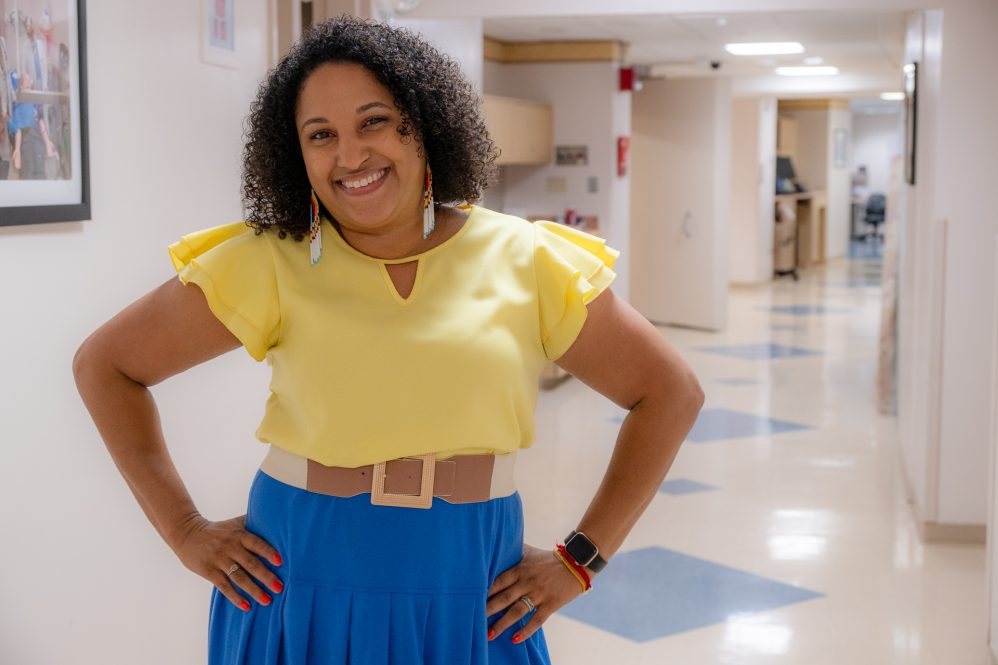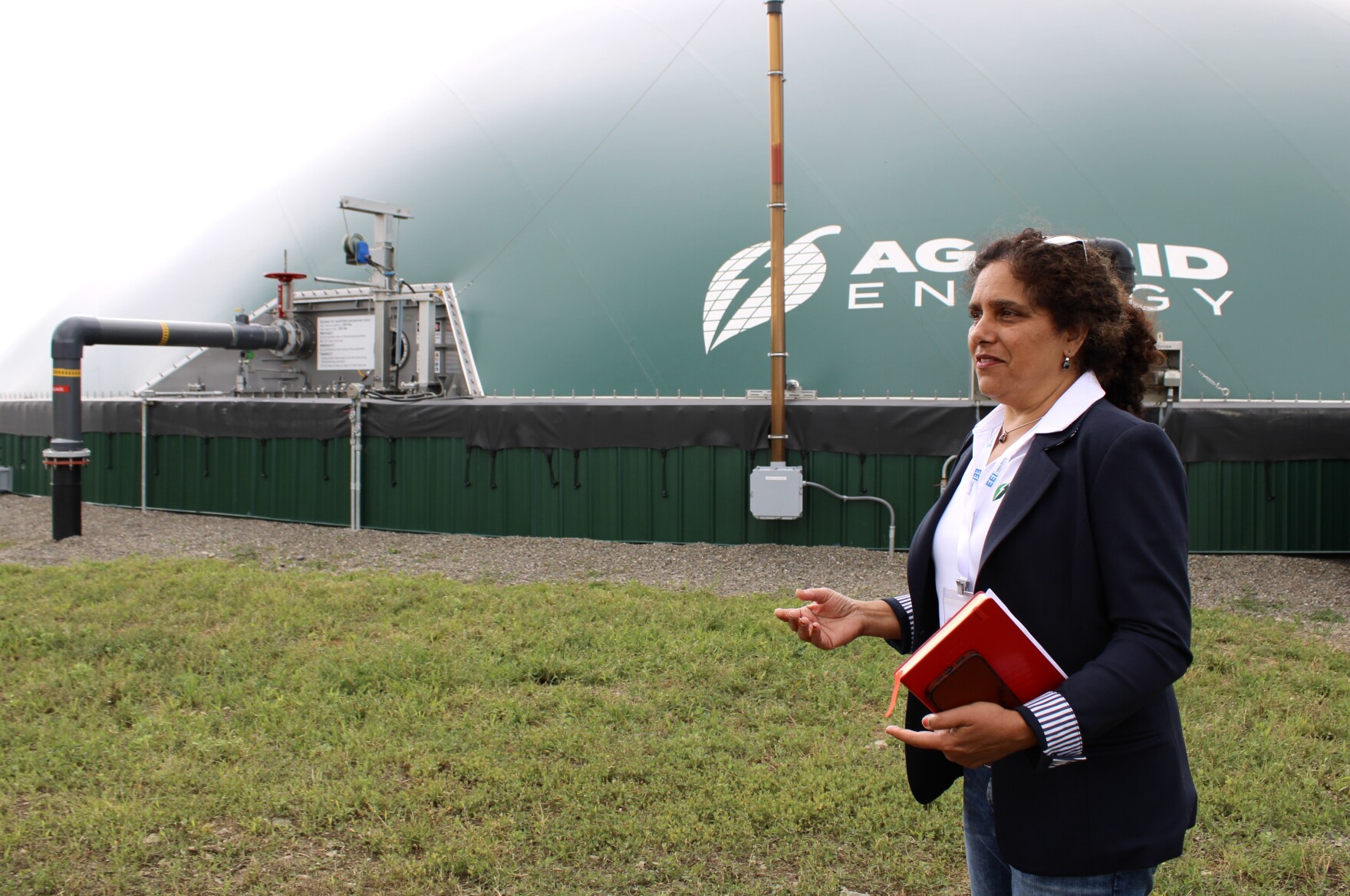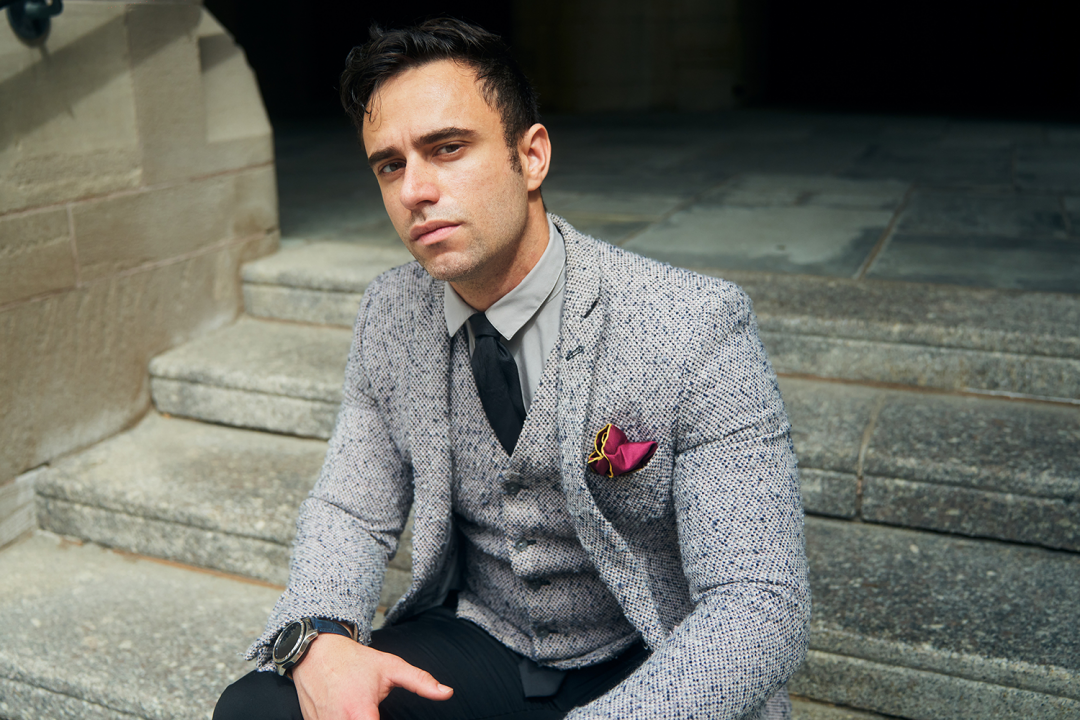Cassandra Keola of Avon grew up in Bristol, and always wanted to work for the State of Connecticut. Ten years in, she still loves working for the state’s only public academic medical center, UConn Health. She absolutely loves UConn, its sports, and her son attends UConn too.
“I am so proud of where I live and work. I bleed blue!” Keola says, who is the epitome of resilience, and she even helps teach and spread resiliency across UConn School of Medicine, UConn Health, and Connecticut every chance she gets.
As an Administrative Program Coordinator in the School of Medicine’s Department of Medicine, Keola wears many hats.
She supports the Chair of the Department Dr. Francesco Celi and also the Department’s fleet of 300 doctors and 36 administrative members with clerical review support, but she is dedicated to the major undertaking of coordinating the intense 4th Year Critical Care Clerkship four-week rotations in the ICU setting for all UConn medical students.
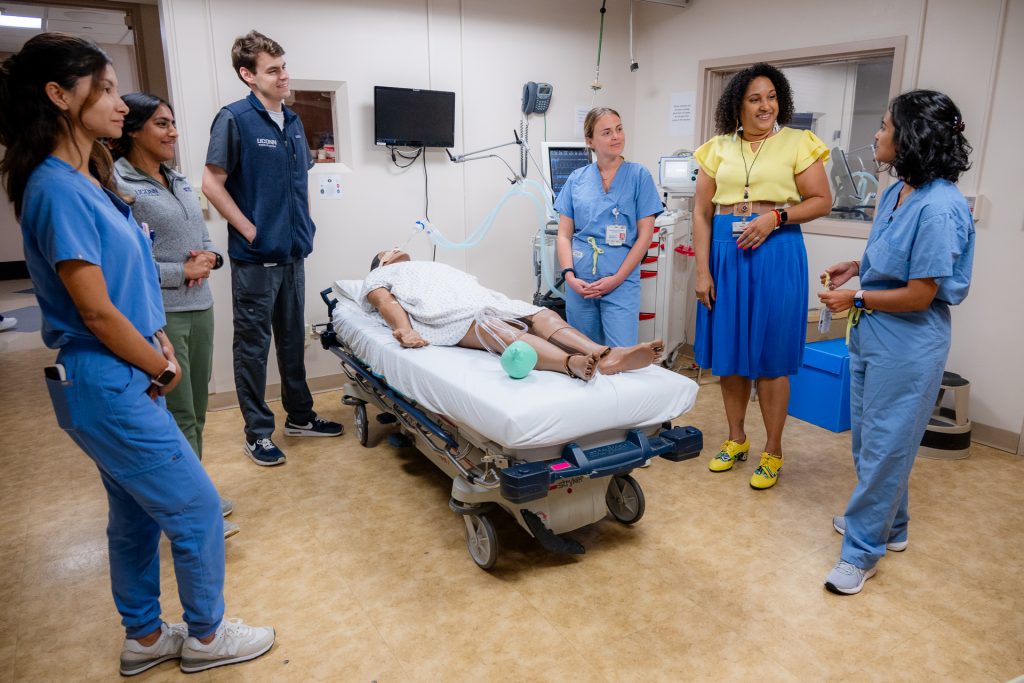
These medical student rotations occur not only at UConn John Dempsey Hospital, but also in the ICUs of Waterbury Hospital, Hartford Hospital, St. Francis, and Connecticut Children’s.
“These soon to be doctors have great mentorship in the critical care clerkship by attending physicians, residents, fellows, and nurses too,” she says. “The rotation in the ICU is a very eye-opening experience for our medical students in the deep end of critical care medicine for the first time applying everything they have learned so far in medical school, including the vital importance of teamwork. The rotation is challenging and unpredictable. Many medical students may see their first very-ill patient code. We make sure we have a strong support system in place for them.”
For this ICU rotation, Keola says medical students also learn didactically in the clinical simulation lab and the classroom too, and the overall experience especially teaches them resilience to overcome the challenges they may face in patient care.
In addition, Keola organizes the monthly Morbidity and Mortality conferences for the Department of Medicine’s various Divisions that ensure high-quality care is always maintained, supports the administrative meetings, and chairs the Dept. of Medicine Administrative DEI committee.
Personal Resilience
In addition to helping medical students be resilient, Keola has overcome a lot personally too.
“I’ve had to be a patient in the UConn Emergency Department – and I am an oncology patient,” she says. “I recommend UConn Health’s care to everyone I meet, and remind them that we are not just a school but a whole hospital too.”
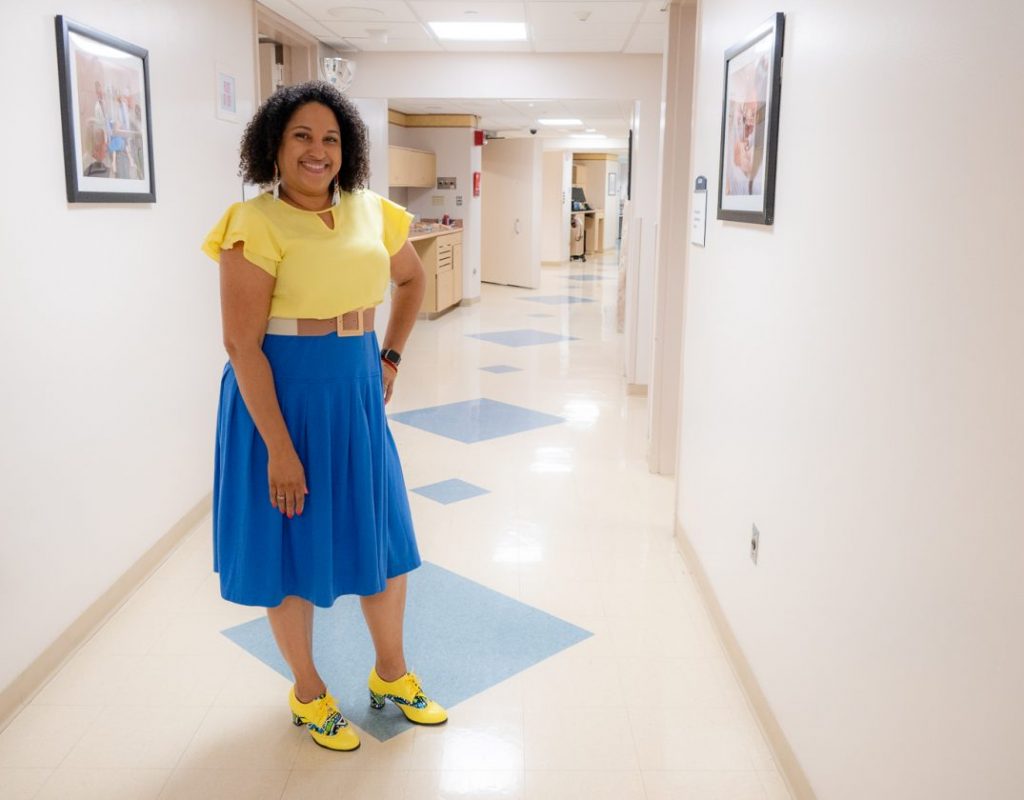
Keola happily shares, “Thanks to UConn Health I am cured for 10 years now!” Keola even facilitated UConn Health’s young breast cancer support group before and during COVID-19. “It was great to encourage other women, and also learn from them.”
Also, Keola says, “I’m a triple threat!” She says growing up as a female, and Afro-Indigenous in Connecticut’s Golden Hill Paugussett Tribe (American Indian and Black), it has not been an easy road for her and others with her backgrounds. “Historically, it’s been difficult. But no matter what, we are still standing after being through a lot.”
Her resolve as a result?
“In what I do, and what I’ve done, I have always wanted to have perseverance and resilience,” she says. “I have always wanted to stick up for others or those who were ever bullied. So, Diversity, Equity, and Inclusion is a form of advocacy, not for me, but a way for helping other people persevere. I remind everyone that while we are all different, we can all co-exist at work and outside of work. It is our differences that make us so uniquely wonderful.”
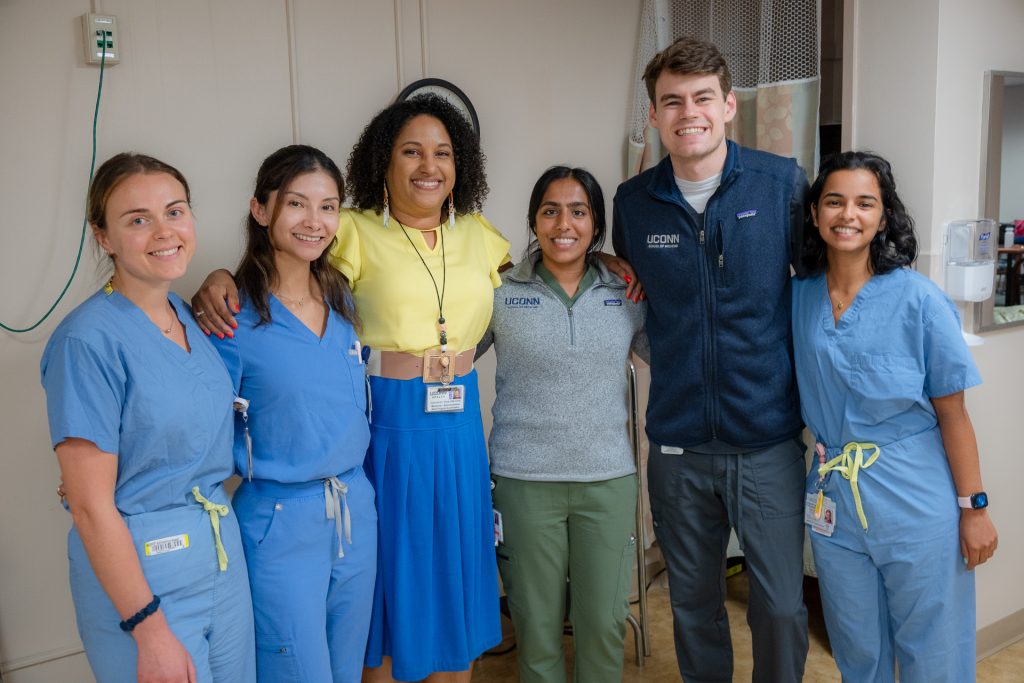
Keola loves the diversity of the workforce at UConn Health that she first witnessed when working initially in Employee Health at the beginning of her UConn career. “I got to meet a lot of people working in occupational health and have seen our diversity first-hand. UConn Health is a state hospital, and we really are here for everyone.”
She also loves another special thing about working at UConn.
“You can come to UConn and do a good job, and move yourself forward in your career. There is equity here! Everyone gets a fair chance and is treated the same across the board whether you are a UConn Health patient, a faculty member, a staffer, or a student.”
Keola’s passion for advocacy and equity also shines in her ongoing volunteer work.
She is a Council Member for UConn’s Office of Diversity and Inclusion, John Dempsey Hospital’s Diversity Council, and her Department of Medicine’s DEI Committee. She also lends her time to participate in the ongoing ODI Coffee Break discussions.
Keola: whose Algonquin name means: Small Bear Warrior; is also a proud, persevering, enrolled, Board Member of The Golden Hill Paugussett Tribal Nation in Connecticut. She’s been working as a Board Member for the past two years on UConn and UConn Health’s Tribal Education Initiative. Its many collaborative projects focus on student success, curriculum, indigenous teachings, storytelling, and even patient care by the UConn Pepper Center of the UConn Center on Aging helping with the resilience and healthy aging of members of Connecticut’s 5 recognized Native American tribes. The UConn Tribal Education Initiative’s agreement is the first of its kind on the East Coast between Tribal Nations and a university.
“It’s historical! I can’t wait for it to come to fruition!” Keola concludes.
